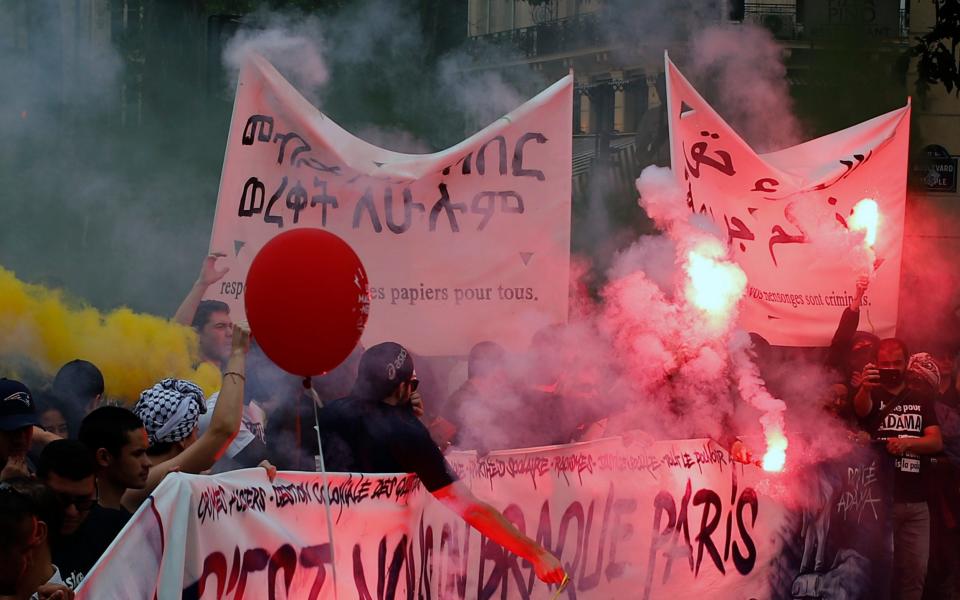Anti-Macron protests as president claims victory is close in battle with unions

Far-Left parties and unions led tens of thousands of protesters who marched against Emmanuel Macron’s in cities across France on Saturday a day after the president suggested he could be close to victory in a public battle over his reform agenda.
Rail and hospital workers, civil servants, students, community groups protesting against police violence and pro-Palestinian activists took part in the “Human Tide against Macron”.
However, with the turnouts of the marches lower than expected, comments on Friday by Mr Macron about the long-running strikes over his liberalisation programme appeared to have been justified.
In a TV interview, Mr Macron said neither demonstrations nor strikes that have disrupted France for the past seven weeks would deter him from pushing through his overhaul of state railways, which he said was nearing completion.
The president said during his visit to Russia that the protests "won't stop" his progress. "I won't preside in light of the polls or demonstrations, because we have done too much of that," (in the past) he said.

He claimed: "We have reached the end of the process."
He appears closer to victory after the government proposed on Friday to take over three-quarters of the £41 billion debt of the SNCF national rail company.
Two unions welcomed the offer and said they would decide soon whether it justifies calling an end to the stoppages, although the CGT vowed to fight on. Edouard Philippe, the prime minister, said the transfer of more than £32 billion of debt was conditional on reforms taking place.
Jean-François Amadieu, an academic specialised in industrial relations, said: “The rail strike appears to have almost run its course,” noting that the protests were smaller than previous demonstrations. Rail strike turnout has fallen to only 14 per cent of workers.
Mr Macron has yielded no ground on key reforms, which include opening French rail to competition and ending early retirement and other rail workers’ perks for future recruits.
The president has staked his credibility on the rail reforms, which are backed by public opinion.
He said he would also press ahead with public-sector cuts and the introduction of stricter university admissions requirements.
With turnout lower than organisers had hoped, Gérard Collomb, the interior minister said: “People may have been deterred from participating by the fear of violence.”
As the Paris march got under way, police arrested 35 people, most for carrying batons or stones. More than 1,200 officers were deployed and seven were slightly injured when dozens of “Black Bloc” anarchists hurled bottles and stones at security forces.
Police responded with tear gas and used water cannons to quell similar disturbances in the western city of Nantes.
Jean-Luc Mélenchon, leader of the radical Left France Unbowed party, urged cheering supporters in Marseille to “form the popular front that the people need.”
Mr Mélenchon, seen as the chief opponent of Mr Macron’s centrist government, condemned “billions given away in tax breaks for the rich,” which he said could have been spent on hospitals.
Philippe Martinez, leader of the hard-Left CGT union, said he regretted the absence of more moderate unions.

 Yahoo News
Yahoo News 